Retro Replay Review
Gameplay
Immortal Cities: Nile Online offers a laid-back, browser-based city-building experience set along the life-giving banks of the Nile. From your first click on an empty plot, you’ll guide a modest encampment—complete with a small palace, marketplace, and a handful of labourers—into a thriving hub of production. The game’s isometric perspective keeps things clear and approachable: you simply select a plot, choose a building, assign labourers, and watch resources flow into your stores.
(HEY YOU!! We hope you enjoy! We try not to run ads. So basically, this is a very expensive hobby running this site. Please consider joining us for updates, forums, and more. Network w/ us to make some cash or friends while retro gaming, and you can win some free retro games for posting. Okay, carry on 👍)
Resource management forms the core of the experience. You’ll harvest clay, wheat, and reeds to fuel brickworks and bakeries, then channel those goods into workshops like the pottery shop and basket shop. As you amass bricks, baskets, and pottery, you can upgrade your palace to unlock more labourers and further develop your city. This cyclical, minute-by-minute progression makes Nile Online perfect for short, casual sessions—ideal for players who want meaningful progress without committing hours at a time.
Trade acts as the connective tissue between players’ cities. Since each encampment produces just one luxury good—be it oil, gold, or emeralds—you’ll rely on the market, the trade wall, or private deals to balance your needs. Bread serves as currency on the open market, while the trade wall offers more favourable barter options once you construct an exchange and a fleet of ships. This three-tiered trading system strikes a satisfying balance between convenience, strategy, and social interaction.
For those looking to add a dash of conflict, Nile Online even introduces an optional military feature. Rather than full-scale wars, you’ll send troops to combat bandits or vie for control of monument sites. Securing limestone from these sites allows you to build grand structures like pyramids and sphinxes, which then grant permanent production bonuses across all your cities. This light combat system adds an extra layer of long-term planning without overshadowing the game’s fundamentally peaceful, cooperative spirit.
Graphics
Though it runs in a browser, Immortal Cities: Nile Online punches above its weight in the visual department. The isometric view provides a clear, layered depiction of your city, letting you zoom out for a regional overview or zoom in on busy workshops. Buildings and labourers are rendered with enough detail to feel alive, from the shimmer of an oil farm’s ponds to the bustle of workers hauling baskets of reeds.
The colour palette captures the golden glow of a sun-baked Nile landscape, with sandy browns offset by lush green fields and the deep blue of the river. Seasonal and time-of-day cycles aren’t present, but subtle animations—like waving palm trees and moving barges—prevent the world from feeling static. Every click triggers a snappy sound effect, reinforcing the tactile satisfaction of dropping a new building into place.
The user interface is clean and intuitive, with clear icons for resources, buildings, and trade options. Menus slide in and out without lag, and tooltips offer quick reminders of production rates and upgrade requirements. While hardcore builders may miss elaborate 3D graphics, the simplicity here is by design: it ensures the game remains accessible on a wide range of systems and keeps loading times minimal.
Overall, Nile Online’s visuals strike a clever middle ground. You won’t mistake it for a high-end desktop title, but within the constraints of a browser MMO, the game looks and runs smoothly. The graphics serve their purpose—making city management a pleasure rather than a chore.
Story
Immortal Cities: Nile Online doesn’t unfold a linear narrative or present a cast of distinct characters. Instead, its “story” emerges from your player-driven journey to establish a prosperous empire along the Nile. Every quarry of limestone, every trade ship dispatched, and every monument erected contributes to a larger tapestry that you and your fellow governors collectively weave.
The thematic backdrop of ancient Egypt provides a strong sense of place. References to Nubian traders, temple donations, and classic monuments like pyramids and sphinxes ground your decisions in the historical mythos. Although you won’t encounter scripted cutscenes or dialogue trees, the cooperative donation mechanics—whether offering luxury goods to the temple for blessings or supporting regional wheat bonuses—immerse you in a community-focused civilization-building saga.
Advancement feels meaningful because you’re working toward tangible symbols of legacy. Upgrading your palace, amassing labourers, and collaborating on monumental projects give each session a sense of narrative achievement. Your city’s rise from a humble encampment to a monument-guarded realm becomes the story you tell, one brick and basket at a time.
In the absence of a predefined plot, Nile Online trusts players to create their own epic. If you enjoy emergent storytelling—where personal goals, trade alliances, and occasional skirmishes define your tale—this game delivers. For those seeking dialogue-driven quests or character arcs, the story may feel sparse, but the depth arrives through sandbox interactions and multiplayer cooperation.
Overall Experience
Immortal Cities: Nile Online excels as a casual, browser-based city builder that respects your time and hardware. Sessions can last mere minutes, yet they yield genuine progress: more workers, expanded markets, and grander monuments. The intuitive interface and isometric visuals keep the focus on strategic decisions rather than fiddly controls or system specifications.
Trading and cooperation lie at the heart of the game’s social appeal. Whether you’re bartering emeralds for bricks on the market or coordinating a joint donation to unlock regional bonuses, the multiplayer elements foster both competition and camaraderie. Optional military engagements and monument sieges add just enough conflict to keep things spicy without alienating peaceful planners.
While lacking a traditional storyline, Nile Online’s historical setting and player-driven progression craft a compelling narrative of growth and empire. The absence of invasive microtransactions—beyond cosmetic enhancements—ensures that success hinges on smart resource management and shrewd trade deals. For those who cherish quick, meaningful gaming bursts wrapped in an ancient Egyptian theme, the title stands out as one of the finest browser MMOs available.
Ultimately, Immortal Cities: Nile Online offers a well-balanced, accessible empire builder that rewards both casual and dedicated players. Its blend of straightforward construction, strategic trading, and community-oriented mechanics makes for an engaging dive into the world of pharaohs, monuments, and merchant guilds—no installation required.
 Retro Replay Retro Replay gaming reviews, news, emulation, geek stuff and more!
Retro Replay Retro Replay gaming reviews, news, emulation, geek stuff and more!

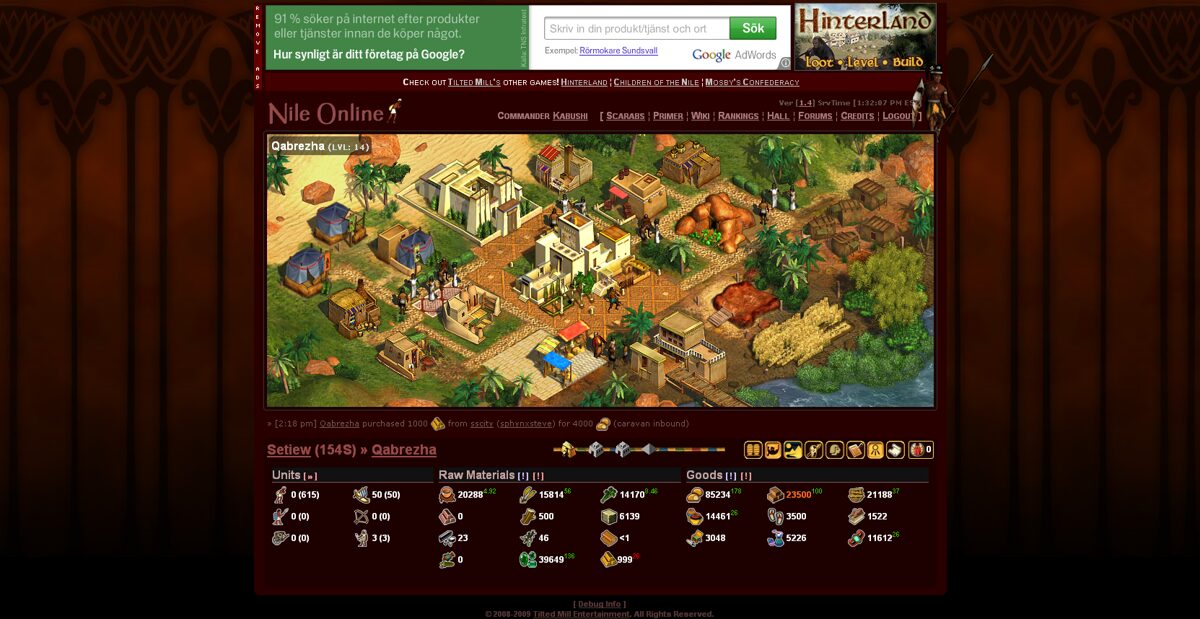
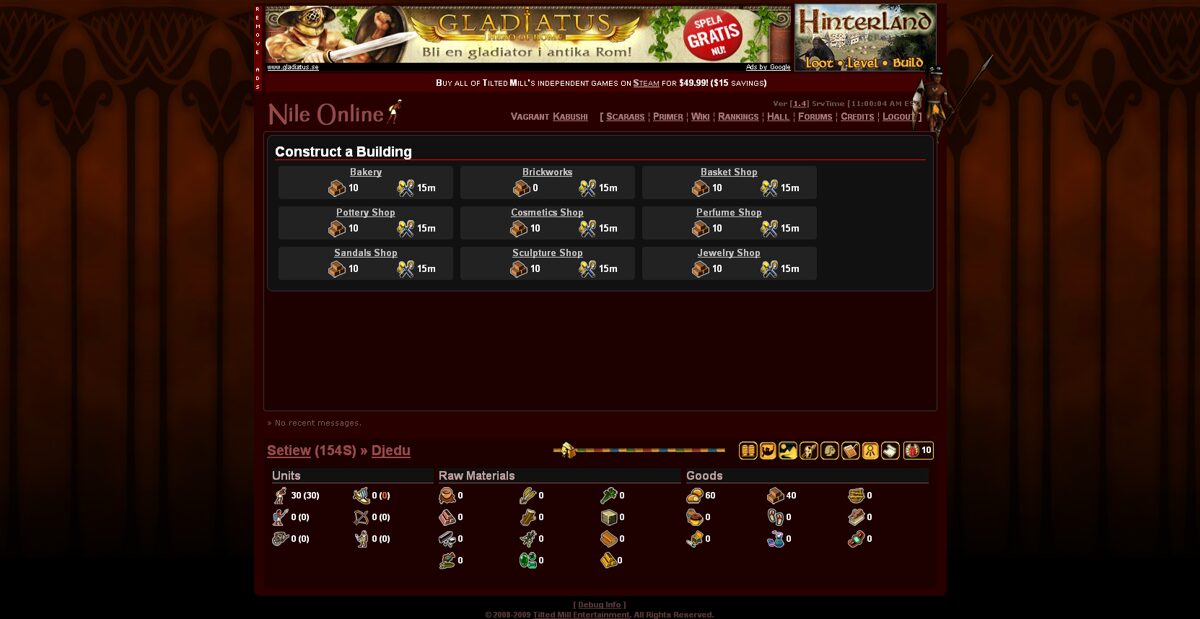
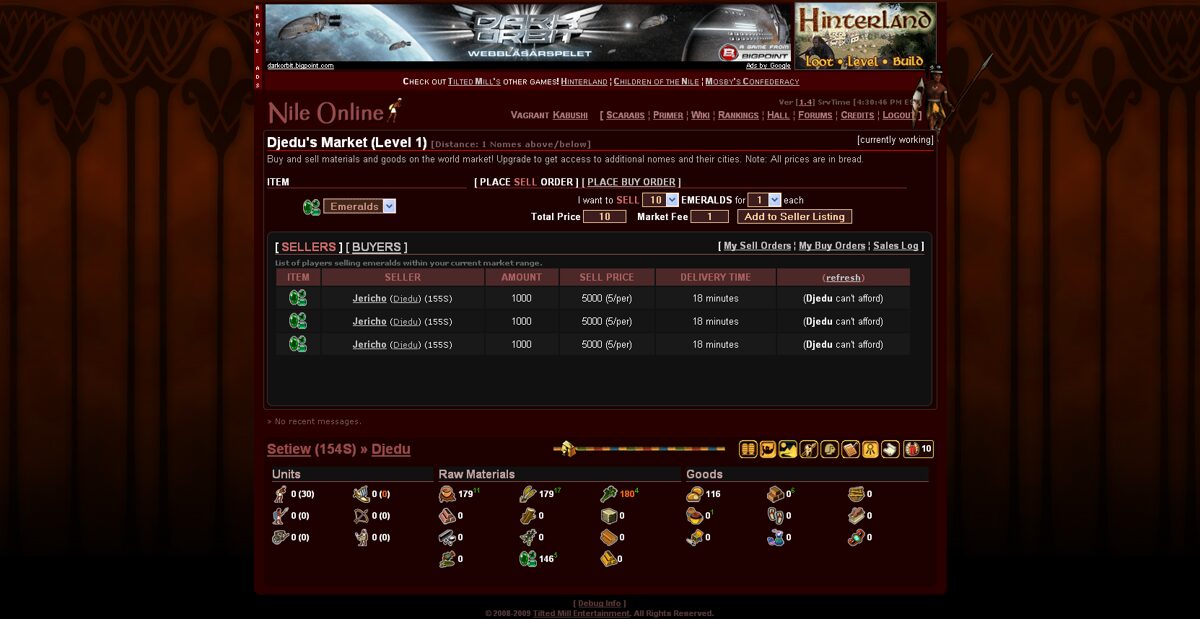
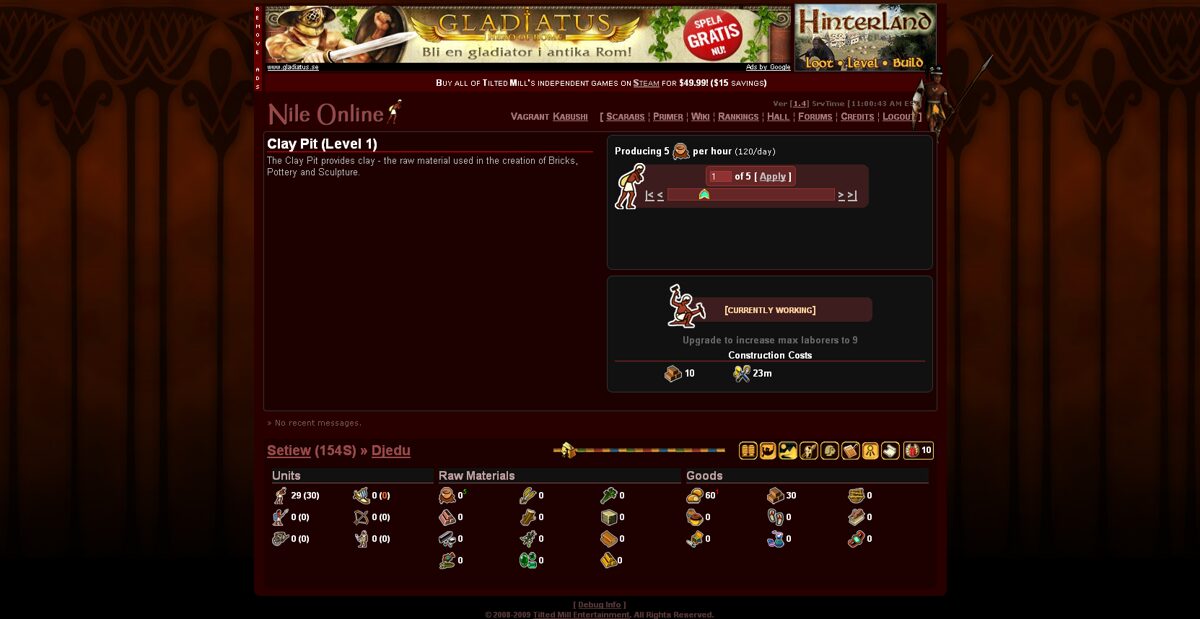
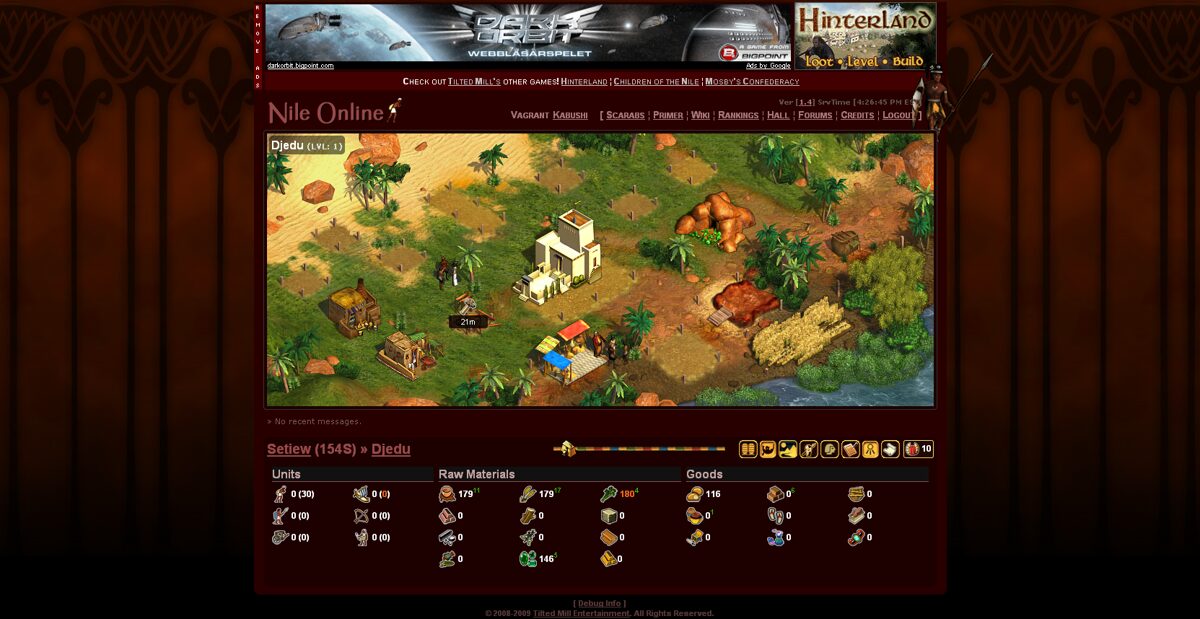



Reviews
There are no reviews yet.